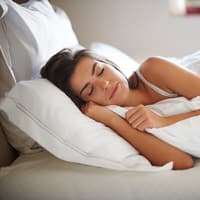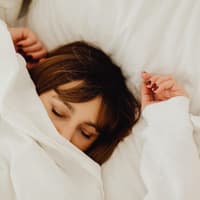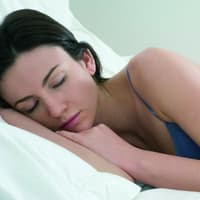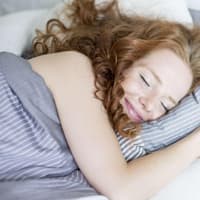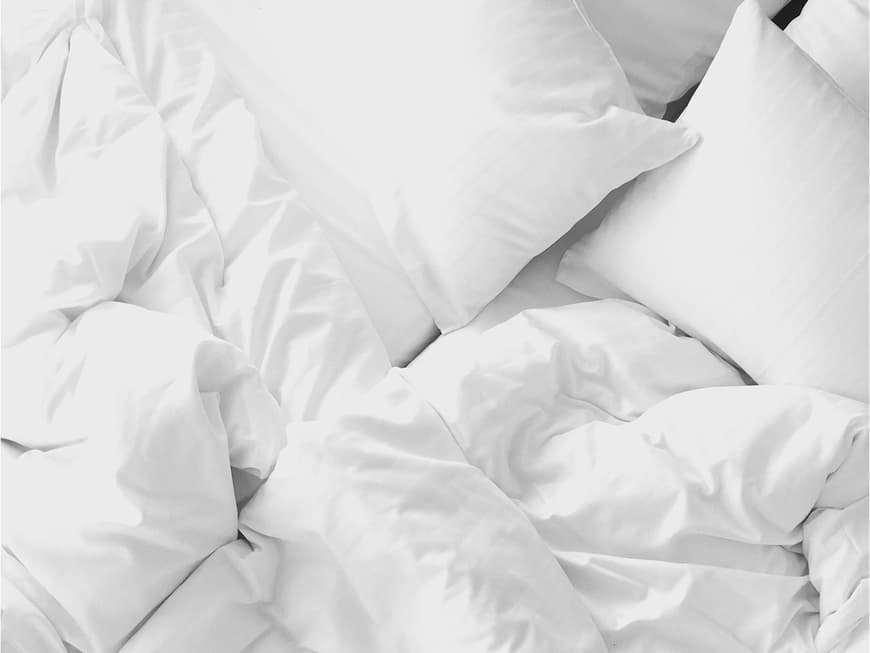
According to a recent study by DAK-Gesundheit, around 80 percent of all Germans are regularly affected by sleep problems. Unfortunately, women are affected twice as often as men. Especially if you toss and turn for hours in the evening and keep waking up at night, you should think about treating your sleep disorders. After all, after such restless nights, you only feel "half human" in the morning, in a bad mood and dissatisfied. No wonder, because sleep is not only beneficial but also important for your health.
Important sleep rhythm
An adult should get between 6 and 8.5 hours of healthy sleep. If you don't get enough of this, it puts a permanent strain on your brain: "If the natural sleep/wake sequence is disturbed, the alternation between deep sleep and dream phases gets out of sync and with it the necessary recovery of body and brain. Above all, mental well-being suffers, aggression alternates with self-doubt and depression occurs," says the renowned expert in sleep biology, Prof. Dr. Klaus Wahle. In addition, too little sleep reduces the ability to concentrate, limits performance and reduces work productivity by 39 percent. These are serious problems in everyday life that require treatment!
Good night!
Our sleep patterns are primarily controlled by the sleep hormone melatonin. It is activated shortly after nightfall. Around two hours after the start of melatonin production, a healthy tiredness normally sets in, which prepares the body for the sleep to come. The maximum melatonin level is reached between three and four o'clock in the morning. After this, the second half of the night begins, melatonin levels fall again and waking up begins.
Treating sleep disorders
Of course, you can help the sleep hormone with the help of tablets. However: "In order to harmonize chronobiological processes, the body's natural melatonin supply must be imitated as closely as possible over a period of several hours. If the hormone is released too quickly or in too high a concentration, it is more likely to have a damaging effect. For this reason, I would like to expressly warn against melatonin from the Internet," says Prof. Wahle.
To ensure that the added melatonin has the same effect as the body's own melatonin, you should take the so-called sustained-release tablets specially developed by doctors. Their active ingredient is released with a delay and thus restores the sleep pattern in a natural way. A large-scale study with more than 600 patients was able to prove the positive effect: After just three weeks of treatment, a significant improvement in sleep quality was observed in the test subjects, an improvement that lasted beyond the treatment period - without any habituation effect or dependency.
Drinking right
Our eating habits can also influence our sleep. "In order to fall asleep quickly in the evening, we should pay attention to what and when we drink," says Dr. Hans-Günter Weeß. The sleep researcher from Landau recommends drinking enough during the day and being more restrained in the evening so that you don't have to go to the toilet so often at night. He also advises the beloved classic: hot milk with honey. The amino acid tryptophan contained in the milk is transported directly to the brain with the carbohydrates in the honey to produce the sleep messenger substance melatonin. However, you should avoid coffee, black or green tea and alcohol.
Turn off the light
For Dr. Weess, lighting also plays an important role: "Light is an important zeitgeber for sleeping and waking. Melatonin is only produced in the body when it is dark. If we expose ourselves to light sources that resemble the sun in the evening, our brain believes it is still daytime and we don't get tired." So banish televisions, smartphones and tablets from the bedroom and replace light bulbs with dimmable light sources. Tip: take a few minutes before going to bed to wind down from the day - reading, meditating, listening to music or writing in your diary can help you relax and fall asleep.
You might also be interested in this:
The miracle cure melatonin for sleep disorders
How to turn your bedroom into a source of energy
Restful sleep at last: which pillow is right for me?
Menopause: What to do about sleep disorders?
Sleep yoga: can it work?
Sleeping well in the heat


